#Focus Group Interpreting Services
Note
Is the Collector capable of feeling romance? Sorry if you've already answered this or something similar😅
I know it's our choice, but i would like to know from the writer's perspective.
This is for {Collection of Overlords}, check MASTERLIST for the work
If it's something similar... I think it'll be the ask about if the Collector/you are ace or like Alastor when it comes to romance and relationships, the main answer is here and the add-on is here.
But, in my perspective, the answer to your question is yes. You're capable of feeling romance and do feel such things. Now why it was never explored in the story up until now is because you take your standing into consideration.
After Part 7, you're set up as one of the sides of the universal balance. So pretty OP (overpowered), just not a top-of-the-world type of deal since you share this same title with Trick. BUT you are the top person in Hell, so yeah.
The closest 'romance' you have of feeling is towards Alastor. Remember you healing him? Yeah, you didn't need to show yourself to him to heal him nor do you need to make your appearance known in the hotel. You being out in the open is a way of showing that you care. I mean, you even stayed and started a new project of yours. Your favouritism is 'love', but I didn't show it as obviously because the focus group this time included other Overlords.
Your love language here is Acts of Service. If it's not obvious enough. Cause you treasure your collection and their uses. You'd be in love with what they do in your name, like someone is killing for you or growing strong for your attention. Are you a narcissist? Not really. You're not that self-centered or arrogant, nor do you lack empathy and consideration for other people. You're just more selective in your care and attention. That's how you got your collection in the palm of your hands.
Yet you can't help but give more favouritism to Alastor because of his over-the-top devotion to you. But, not sure if anyone noticed, Alastor's not the only one to submit to you as quick, Zestial is the other one. (a bit of lore here) The reason why Zestial and Alastor got along was cause they have that in common. Now why you favour Alastor more? Because Zestial is not as active as Alastor when it came to his services.
While Alastor hunts down unworthy and self-proclaimed Overlords for you, Zestial collects information and assesses the situation with his wisdom. See, Zestial doesn't actually do much to be frank. He as the oldest in the Collection is good to you when it comes to teaching new souls that enter your collection, that's all. Not to mention, he holds unspoken power when you aren't present in meetings. Like in episode 2, everyone quiets down, listens, and agrees with Zestial. It's cause Zestial is seen as another you.
Why not Alastor? Because he's just seeking your attention, he doesn't care for leading the group on or helping the others, he doesn't care about others or giving them a chance to gain what would be his attention and favour from you. Alastor is well aware that the collection has such a variety of demons and personalities because you want demons with different talents and focus. Most of the other Overlords knew this too, there's a hierarchy that I won't explain here.
Oh, Alastor's not the only candidate for your 'love'. There are bits of romance towards Carmilla and Rosie, if you prefer that. Otherwise, see it as platonic~
These are my thoughts. In the end, you're the one interpreting the story and 'you'.
#Circe's Nighty Writings#alastor imagine#alastor x reader#alastor x y/n#alastor x you#hazbin hotel#hazbin hotel alastor#alastor headcanons#alastor fanfiction#alastor#hazbin hotel oneshots#hazbin hotel imagines#hazbin hotel fanfiction#hazbin hotel x reader#hazbin hotel overlord#Collection of Overlords#hazbin hotel rosie#rosie hazbin hotel#overlords#hazbin#zestial#carmilla hazbin hotel#hazbin hotel zestial#carmilla carmine#hazbin hotel carmilla#carmilla x reader#hazbin carmilla#hazbin hotel vox#hazbin hotel vees
67 notes
·
View notes
Text
🌤️Sun in Houses/Signs
-BASED OFF MY INTERPRETATION
🌤️🌤️🌤️🌤️🌤️🌤️🌤️🌤️🌤️🌤️🌤️🌤️🌤️🌤️🌤️🌤️🌤️🌤️
☀️Sun in Aries/1H:
- You could be seen as someone who is very assertive, passionate, and confident. You could focus on yourself a lot by building your confidence, self love, and more. You could be seen as someone who stands out, very generous, and is very creative. The sun also represents the father and a lot of people could say you look like your dad.
☀️Sun in Taurus/2H:
- You could focus a lot of your finances it could be by building it or spending it. You could be very materialistic when it comes to money overall stability is very important to you. You could be know for being a singer or using your throat to express yourself.
☀️Sun in Gemini/3H:
- In your k-12 years, you could’ve been well known at school or peaked. You could be a known social media influencer, known for your intelligence, the way you communicate, etc. You probably could’ve been at the top of your class and participated in a lot of things.
☀️Sun in Cancer/4H:
- You could be very emotional or in touch with your emotions. Your family and home life could be a very important factor to you. You could invest a lot into your family and you could be the one always carrying your family on your back. People around you could see you as nurturing, mother figure, etc.
☀️Sun in Leo/5H:
- You could very into the performing arts (singing, dancing, artist, etc) and you could be known for that. You could be seen as someone who is very loyal to those around them. You could have a wild side and probably let your partying spin out of control.
☀️Sun in Virgo/6H:
- You could hope from job to job, work a lot, be a gym freak, and more. People could see you as a someone who is a perfectionist, picky, and very organized. I’ll say your pets, health/fitness, co workers, public service, and more could play a big part in your life.
☀️Sun in Libra/7H:
- Beauty, relationships, and partnerships could be very important for you. You could be known as someone who is a very beautiful, fashionista, and artistic. The sun also represents the father like your dad could be a businessman, you could have a strong bond with him, he could be very into his looks, someone who is artistic, and more.
☀️Sun in Scorpio/8H:
- You could be into the occult, magic, and more. You could be known for your seduction, magnetism, and more. I’ll say intimacy, having a deep connection, and more is very important to you.
☀️Sun in Sagittarius/9H:
- You could be seen as someone is who popular, funny, and adventurous. I’ll say you could be obsessed with television, traveling, expanding your learning, and more. You could be very religious and deep into your beliefs.
☀️Sun in Capricorn/10H:
- You could be very business minded, seen as a leader in your career, someone with a lot of structure, and more. Your career, creating a legacy, and expanding your achievements is a huge focus for you. You could be in a career field having to do with self expression and you could’ve grown up in the public eye.
☀️Sun in Aquarius/11H:
- You could be known to be unique, innovative, creative, humanitarian, and more. I feel like you could be known for your friends also. You could be the leader in your friend group, known as someone with tons of money, and more.
☀️Sun in Pisces/12H:
- People could see you as someone who is very spiritual, in tune with your higher self, and more. I’ll say a lot of people could be jealous of you or dislike you but you don’t even realize it. You could express yourself by doing impersonations/acting and I could see you really being good at that.
101 notes
·
View notes
Text
it must’ve slipped out | pt.2
pairing: ???steve harrington x fem!reader???
summary: follow up to the first part which you can read here
warnings: curse words, mentions of sex/insecurities/feeling like shit, kinda toxic relationship idk? mentions of damage to the body(?) idk what else to put there
type: angst
a/n: it is finally here after so many of you guys requested it! i won’t be doing a next part, this is the last one, but if you guys want to request something then do it!, i have 2 requests rn on my list and 3 works of my own that i want to write:) i hope you guys will enjoy this part and if you dont then well, im sorry<\3 hope yall are having a nice day/night! 🧡 oh and, the last sentence is purely for your own interpretation
word count: about 2k
part 1
------------------------------------------
The whole group was walking towards the Wheeler’s house in hopes to get a hold of the guns which Nancy mentioned she had had in her room. Robin, Nancy and Steve were in the front, (Y/n) and Eddie slowly following them in the back.
“You seem off today.” Whispered Eddie leaning his head towards the girl.
“Huh? Oh. I don’t know why, maybe it’s because we’re in a different, much scarier dimension.” She smiled at him.
“Oh yeah, right. I forgot about that for a second.”
“Really? I can’t focus on anything besides this dust, or whatever it is. I keep inhaling it, nasty shit.” She coughed.
“Is everything okay between you and Harrington?” he asked quietly. “Sorry if that’s too straightforward.”
“Sure, why wouldn’t it be?” her gaze finding Steve. “We’re fine.”
“Yeah, I’m not buying that.”
“What do you mean?”
“It’s the way you look at him. I have to admit you don’t even try to hide it very well.”
“I look at him… normally.” She sighed. “It’s just… never mind.”
“Did he do something stupid?”
“Yeah, you could say that…” she replied hesitantly.
“Do you want to talk about it?”
“Um, I don’t think this is the time and place for that.” She replied quietly lowering her head at the same time. “He just… his actions make me feel insecure about myself”
“What? Well I don’t know the whole story and shit but I think you’re gorgeous if that means something to you. Don’t base your confidence on what other people think.” The girl chuckled quietly at his response. “And screw him if he makes you feel like that.”
“Thank you Eddie, that cheered me up a bit.”
“Always at your service.” He winked at her and smiled widely.
Suddenly something interrupted their conversation, the ground started shaking uncontrollably.
“I HATE EARTHQUAKES” (Y/n) heard Robin yell.
Everyone grabbed onto something except for (Y/n) who fell on the ground scraping her arms and knees, one wound would for sure turn into a scar later on. When all of it stopped she felt someone pulling her up.
“Shit, are you okay?” She locked eyes with Steve, his arm holding her waist.
“Yeah, yeah. I’m fine.” She replied.
In a moment others were quickly at her side.
“Can you walk?” (Y/n) heard Robin say.
“Yeah, I think so. I just have some scratches, that’s all.” She said smiling at her, Robin reciprocating the gesture. “We better get going before those nasty monsters find us again or even worse.”
“Yeah, I’m not taking part in another earthquake.” Robin mumbled and offered (Y/n) her arm to walk together.
After they got out of the forest Nancy saw her house in the distance. Luckily, they didn’t have to walk for much longer. When they reached her house she slowly unlocked the door and rushed upstairs, Robin and Eddie following her. (Y/n) was left with Steve, she really hoped to get out of this world as quick as possible, all of this negative energy was taking a toll on her.
“Are you sure you’re okay?” Steve asked her approaching slowly.
No. I’m not.
“Yes, why wouldn’t I be?” she lifted the corner of her mouth.
“No reason.” He smiled. “Just worried about you”
Then (Y/n) heard something coming from the living room. She went past Steve to enter the room. Was that a voice?
“Dustin?” she whispered. “Steve come here!”
“What is it?”
“Just listen.” Both of them started slowly making circles around the room. “Do you hear it?”
“Is that Henderson? Holy shit. DUSTIN!” Their screams started filling up the house, the rest of their friends quickly running downstairs.
After they found a way to communicate with Dustin they decided to meet him and the others at the gate in Eddie’s trailer. Everyone got a bike from Nancy’s house, fortunately she had like six of them, maybe more. When they arrived at their destination they started getting out of this shit-hole. (Y/n) decided she wants to go first, Robin was quickly at her side to catch her if she slipped or something. She didn’t want any help but Steve insisted and pushed her upwards which made her feel even more insecure than before. It was just a nice gesture right? Wrong. For her it meant that he didn’t believe she could climb that rope on her own. She thought that if it was Nancy or Robin who went first he wouldn’t push up neither of them, because in his eyes they were capable of doing it on their own. When she fell onto the stained mattress she quickly got up to hide behind Max. She wondered why she had decided to go first. Tears started forming in her eyes because she felt like a failure. All of this was just too much for her. When everyone got out of the Upside Down they hid Eddie somewhere and all went over to their homes. However before (Y/n) left Robin quickly caught up to her.
“Hey um, I was wondering if maybe you’d like to have a girls night after all of this is over? I just thought both of us will need it.”
“Sure, I’d love that.” She smiled. ”Is um.. Nancy coming too?”
“I know how things are between you so um… she won’t be coming.”
“Thank you Robin. I’ll see you later!” She quickly hugged her and turned around to find Steve who insisted to go with her to her house.
He knew that her dad was out of town and her mom had a night shift that day, he had hoped to spend some time with her, alone. She didn’t want him to go inside, but she gave up, as always. (Y/n) had to admit she needed his attention but sadly her mind was still occupied with the thoughts that he was imagining she was Nancy.
“Thank you for helping Nance back there.” He smiled at her when they entered the kitchen.
Of course, Nance again.
She just smiled at him and went on to make some tea for both of them.
“Is everything okay?”
“God, can you stop asking me that!?” she raised her voice which surprised the boy. “I am so fucking tired of this question. Of the constant feeling like a fucking burden Steve. When you ask that I feel as if I’m just in your way and that’s making me feel so miserable.”
“Baby, you know it’s not like that. I just worry about you a lot and I’m so sorry you feel that way.” He came closer to her and embraced her. Her body stiff against his. “Is there anything I can do to make you feel better?”
She snorted and then broke out of the hug to look him in the eyes.
“How about you start with saying my name instead of Nancy’s when we are having sex?” Her tone was cold, eyes staring into his with pain and anger.
“What are you talking about?” He chuckled in hopes to diffuse the tension between them.
“Was what I said not clear for you?” She then completely left his side to continue making her tea.
“Yeah it was clear, I just don’t understand where it came from?”
Pure confusion was written on Steve’s face. (Y/n) placed the kettle on the stove and turned it on. Then she turned around to face him, her hands gripping the kitchen countertop. She inhaled deeply to calm herself down, she was never the one to throw tantrums or fight with people.
“You said her name.” A small tear started to fall down her cheek which she quickly wiped away. “When we had sex, that night when your parents weren’t home.”
He just stared at her in disbelief.
“No, I couldn’t have said that.”
“Why do you think I left that night?” She paused for a second. “Oh and if you really think that my mom needed help with something, think twice.”
“Okay well if I really said it then I’m sorry. I don’t even know why I would do it.”
“Sorry won’t make this right Steve!” She raised her voice, she couldn’t keep her anger inside anymore, no matter how hard she tried. “I feel like I take up a second place in your life, that Nancy is still the person you hold closest to your heart. You said her name because you’re still not over her.”
“You know it’s not true.” He snorted.
“Well what if it is?” Her hand which was rested on her forehead started slowly sliding down her face. “I think that if we want to continue this…” Her pointed finger going back and forth between them. “…relationship or whatever you call it, you need to get over her. And for now I cannot see you doing that. Today you were so worried about her and I get it! Yeah she got hurt, but why didn’t you help her get on that stupid rope? You helped me because you think I’m not capable of that stuff and you feel sorry for me! I bet you are with me only because you feel pity for me!”
“Okay now you are just making shit up! You know it was never like that! I do NOT feel sorry for you! Why would you even think that? I love you!” He yelled.
“Love me? You love me and moan Nancy’s name, huh? You love me but you always look at her, you love me but you always go to her when she needs you, you love me and yet I constantly feel like you don’t.”
They both stood there in silence, warm tears now falling freely down (Y/n)’s face.
“I think we need a break.” She managed to say quietly.
“What? What the fuck?”
“You need to rethink what I mean to you, what Nancy means to you. I can’t be with you when you always make me feel like I’m the other woman.” She looked into his eyes and continued. “When you figure out your feelings, we’ll talk. We might even get back together. But right now you need space and I do too.”
Steve was angry and she could feel it, but he wasn’t the type to be mad at her, especially now when it was certain she was the victim in this situation. He started thinking about the last month and all the situations with Nance. Maybe (Y/n) was right? Maybe he really needed time to think all of this through?
“Okay.” He whispered. “I…I’m sorry. I’m sorry for being an idiot. And making you feel that way.”
“It’s okay.” She smiled and wiped her nose with the back of her hand. “Let me walk you out.”
He obeyed and followed the girl outside. She gave him a quick hug and went back inside without looking back. He stood there for some time just watching her house and thinking how did he screw this up so bad. In the meantime (Y/n) went to the kitchen in hopes to finally drink her tea and get her mind off of Steve. She thought that maybe they just aren’t made for each other. She also thought that no one will like her, she was surprised when she found out he had liked her in the first place and now it’s all gone.
Little did she know, she had already caught someone else’s eye.
taglist: @imleavingtonightt @r93339 (couldn’t tag) @stvrdustalexx @cursedandromedablack @ccosmic-illusion @onecrazydirectioner @luvwanda @tomskookie @sweetpickles3 (couldn’t tag) @alainabooks143 @subjecta13-thefangirl @monosjoons @yunho-leeknow @ayyitsxme @eternallyvenus @sweet-creature98
#steve harrington#steve harrington x you#steve harrington angst#steve harrington x reader#robin buckley x reader#eddie munson x reader#stranger things#steve harrington imagine#nancy wheeler
3K notes
·
View notes
Text
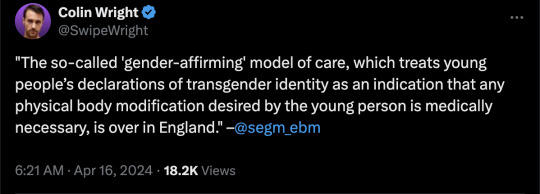

By: SEGM
Published: Apr 15, 2024
The Cass Review of England’s gender services for children and young people, initiated four years ago, culminated earlier this week in the publication of the final 388-page report. The report was accompanied by 9 systematic reviews of evidence supporting the recommendations. Within hours, NHS England responded, thanking Dr. Hilary Cass and her team for “stepping up to lead such a complex review.” NHS England committed to following through on Dr. Cass’ recommendations, and acknowledged the national and international significance of this seminal work: “Your final report will not just shape the future of healthcare in this country for children and young people experiencing gender distress but will be of major international importance and significance.”
A wide range of stakeholders–from patients and clinicians to bioethicists, legal scholars and healthcare historians–will undoubtedly be studying the hundreds of pages of the Cass report and the accompanying studies for weeks and probably years to come. However, there is also considerable urgency to understand its key take-aways and the likely implications.
Balancing two conflicting priorities–the need for an unrushed, thorough and accurate analysis, as well as our commitment to the members of the healthcare community to inform them of key developments in the field–SEGM has decided to release our preliminary analysis. We chose to focus only on the most salient aspects of the Cass Report that will likely lead to a change in clinical practice.
What we present below is SEGM’s interpretation of the key messages in the report. We do not doubt that every person who reads the report will find a new “angle” and perhaps have a different interpretation. As always, we welcome disagreement and debate. The “many eyes of science” are needed now more than ever.
Summary
The Cass Review marks the end in England of the era of a highly medicalized approach to the treatment of young people with gender-related distress, which has come to be known as “gender-affirming care.” While the treatment protocol for youth comprising of puberty blockers, cross-sex hormones, and surgery, known as the “Dutch Protocol,” was invented in the Netherlands in the 1990’s, the report points out the concept of “gender-affirming care”–the notion that the doctors must accept children’s declarations of identity at face value and must assist them in gender change as early as possible–actually originated in the United States, and only then spread internationally.
The Cass Review provides a scathing assessment of the gender-affirming approach in general, and the gender-clinic model of care, which operationalized this approach of on-demand provision of gender-reassignment interventions, in particular. Going forward, England will treat gender dysphoric youth <18 using standard psychological and psychotherapeutic approaches, with very few young people receiving endocrine gender reassignment interventions (gender-transition surgeries for <18s have never been allowed in England). Further, the review noted that the group of young adults 18-25 is subject to many of the same concerns as the <18s, and recommended that the new regional “hubs” being set up to help gender dysphoric youth be expanded to include patients up to 25 years old.
NHS England (NHSE) welcomed the Cass Review’s recommendations and expressed a firm commitment to implement the recommended changes. However, NHSE went one major step further, announcing that they will be initiating a Cass-style review into the adult gender dysphoria clinics (GDCs) in England. NHSE had already decided to bring forward to 2024 its periodic review of the adult “service specifications,” which set out what clinical services adult clinics provide; as a consequence of Cass’ recommendations, they are additionally launching a much broader review of the entire adult gender clinic system. This was in part due to the concerns raised by the Cass Review that a vulnerable group of 17-25-year-olds represents fundamentally the same group of youth as the <18s, and needs similar protections from non-evidence-based practices. Further, whistleblower complaints from adult clinics corroborated concerns that vulnerable adults were not receiving proper evidence-based care. The refusal by all but one adult gender clinic to cooperate in the outcome analysis for the 9000 patients as part of the Cass Review likely contributed to NHSE’s determination to investigate the adult service. Adult gender dysphoria clinics see patients aged 17 and upwards, and NHSE has written to require them to halt appointments with 17-year-olds.
In summary, the care for <18s in England will no longer be based on the “gender-affirming” model of care but instead will treat youth with gender distress similarly to how it treats youth with other developmental struggles. Further, with the announcement of the adult gender clinic review, England starts a new chapter in the history of gender medicine, with a new focus on vulnerable gender-dysphoric young adults.
Many more developments are expected from England in the coming months. To what extent the UK changes will impact the West’s approach to helping young gender-dysphoric individuals remains to be seen. In SEGM’s view, the impact will likely be significant, even if delayed, as other countries contend with England’s findings and their implications for evidence-based clinical practice.
Detail Regarding Social Transition, Puberty Blockers, Cross-Sex Hormones, Surgery, and Overall Care Delivery Model
Social Gender Transition
The Cass Review positions social transition as an active healthcare intervention “because it may have significant effects on the child or young person in terms of their psychological functioning and longer-term outcomes.” (UK and other countries’ clinicians increasingly use “social prescribing” interventions in order to impact health outcomes).
For young children, the review strongly discourages social transition, noting that “sex of rearing” may profoundly alter a child’s developmental trajectory, with long-ranging consequences. Should parents insist on it, the review recommended that a healthcare professional be involved in helping parents understand the risk-benefit ratio of such a profound and likely life-altering decision.
For older teens, the review recognizes the autonomy of young people’s self-expression but strongly recommends that parents be involved in the decision, noting that secret transitions cause a rift between teens and their families, destabilizing the very support networks that are essential for young people’s long-term well-being.
More generally, should social transitions be undertaken, the review recommended only a partial, rather than complete, social transition, especially for younger children, noting how many children currently live in fear of being “found out.” The discontinuation of the use of puberty blockers (discussed next) will make that fear a certainty. Thus, it would be highly unwise for a parent to create a situation where a young child is living in “stealth.”
These recommendations were supported by interviews with patients and families, and by a systematic review of evidence of social transition published in a peer-reviewed BMJ journal. The review found a dearth of evidence and concluded, “professionals working in the area of gender identity and those seeking support should be aware of the absence of robust evidence of the benefits or harms of social transition for children and adolescents.”
The recognition of not only the potential benefits, but also the potential harms, and the unknown benefit-harm ratio of social gender transition is noteworthy.
Puberty Blockers
The use of puberty blockers to stop normally-timed puberty will no longer be offered as part of England’s publicly funded healthcare system. This is not a “new development” as the problems with using puberty blockers for gender dysphoria were already part of the Cass Review’s interim report, and NHSE had updated its puberty blocker policy a month before the issuing of the final Cass Review.
The rationale for withdrawing puberty blockers from medical practice is manifold. It ranges from unclear treatment aims (besides altering a child’s body), a lack of credible evidence that stopping normally-timed puberty leads to improvements in mental health, safety concerns (e.g., bone health), and profound unknowns across a range of health domains, especially brain development. The fact that nearly 100 percent of puberty-blocked youth proceeded with cross-sex hormones was treated as a negative signal that puberty blockers may be setting children on an irreversible path of gender transition.
As we noted in our earlier analysis, the NHS guidance regarding discontinuing the use of puberty blockers for stopping normally-timed puberty affects only the NHS clinics. Private clinics (including the single non-NHS youth clinic operating in the UK, as well as online clinics based abroad but serving UK citizens) are not subject to the NHS policies. This created a loophole that could be exploited to circumvent NHS actions to safeguard England’s youth from harmful medical interventions. In response to these concerns, Health Minister Victoria Atkins made clear the government’s intention to limit private gender care for under 18s and to eradicate the online trade in hormones, following Cass’ recommendations.
As we noted earlier, the NHS intends to conduct research into puberty blockers, and there has been much speculation about research design in general, and the eligibility for research in particular. The quote below from the final Cass Review suggests that eligibility may be limited only to natal males with early-onset and long-lasting gender dysphoria. It appears to suggest that natal females may not be eligible, as they can successfully undergo convincing masculinization with the help of testosterone at virtually any age:
14.56 Transgender males masculinise well on testosterone, so there is no obvious benefit of puberty blockers in helping them to “pass” in later life, particularly if the use of puberty blockers does not lead to an increase in adult Height.
14.57 For transgender females, there is benefit in stopping irreversible changes such as lower voice and facial hair. This has to be balanced against adequacy of penile growth for vaginoplasty, leaving a small window of time tо achieve both these aims.
14.58 In summary, there seems to be а very narrow indication for the use of puberty blockers in birth-registered males as the start of a medical transition pathway in order to stop irreversible pubertal changes. Other indications remain unproven at this time.
As we noted earlier, the NSHE made it clear in its puberty blocker update policy that there are no guarantees that such research will obtain the necessary ethical approval.
Like other recommendations in the Cass Review, the puberty blockers recommendation was based on extensive stakeholder consultation, and supported by a systematic review of evidence, which showed no credible psychological benefits of puberty suppression in the treatment of gender dysphoric youth. As we explained earlier, the original 2020 NICE systematic evidence review was updated in 2023, but newly-identified studies did not change its conclusions.
Cross-Sex Hormones
Shortly before the publication of the final Cass Review, NHSE issued an updated policy about the cross-sex hormones. As we noted at the time in our earlier analysis, the policy was only a minor update, necessitated by the launch of the new gender services, and it represented only minor changes. Cross-sex hormones for those around their 16th birthday were still allowed, although a new centralized team not directly involved in care of the young person would need to approve the medical necessity. At the time, SEGM posited that following the final Cass Review, the NHS will commit to a more thorough review of the cross-sex hormones policy, and further updates. This indeed has occurred.
According to NHS England’s response to the final Cass Report:
NHS England will review the use of gender affirming hormones through a process of updated evidence review and public consultation, similar to the rigorous process that was followed to review the use of puberty suppressing hormones.
NHS England has made clear that there will be a single cross-sex hormones policy “which will cover all people over the age of 16,” with further details to follow.
NHSE acknowledged Dr. Cass’s recommendation that “the new providers should be ‘extremely cautious’ when considering whether to refer young people under 18 years for consideration of hormone intervention.” To support this recommendation while the new cross-sex hormones policy is being developed, NHSE has “established a national multi-disciplinary team (MDT) that will review and need to agree all recommendations for hormone intervention.” Further, NHSE noted that the “first meeting of this new national MDT will take place later this month” chaired initially by Professor Judith Ellis, former CEO of the Royal College of Paediatric and Child Health.
The original NICE systematic review of evidence for the effects of cross-sex hormones was conducted in 2020, and it found similar problems in the evidence base as the puberty blockers review (unreliable evidence base), but with a signal that there may be some small short-term improvements in mental health following cross-sex hormones administration. The new systematic review of cross-sex hormones confirmed these findings.
The final Cass Review expressed concern over how small these changes were, considering the fact that the introduction of the long-awaited cross-sex hormones and desired physical changes is expected to lead to short-term improvements in mood. This suggests that the Cass Review is concerned not only with the low certainty of the reported benefits due to poor study designs, but also with the possibility that the small improvements may be short-lived and due to the potential placebo effect:
15.27 When a young person has been on puberty blockers, a short-term boost in mental wellbeing is to be expected when sex hormones are introduced. Testosterone is faster to produce physical changes than oestrogen, and birth-registered girls can expect to start seeing body changes in line with their identified gender within a few months. The start of long anticipated physical changes would be expected to improve mood, at least in the short term, and it is perhaps surprising that there is not a greater effect size. However, much longer term follow-up is needed to understand the full psychological impact of medical transition.
The NHSE’s announcement made it clear that the final cross-sex hormones policy will be based on the updated systematic review of evidence.
Surgery
Surgeries have never been available to under 18’s in England, so no systematic reviews of surgeries has been conducted, and no additional changes to the policy for youth under 18 are needed. However, NHSE’s announcement of the Cass-style review into the adult gender clinics raises questions about whether surgical interventions for young adults will now come under scrutiny as well.
Change in the Delivery Care Model Overall
In addition to making specific recommendations overall about social transition and endocrine interventions, the review challenged the concept that gender dysphoria/gender incongruence in youth as an exceptional condition that needs exceptional treatments delivered via exceptional models of care exemplified by gender clinics.
The healthcare delivery system for gender dysphoric youth will be restructured to provide a fundamentally different model of care, and realign it with the way care is typically organized in England. Every gender-dysphoric child or young person will have a dedicated primary care provider (a pediatrician or a GP) overseeing their care and well-being. Children and young people with mental health conditions, or those whose gender incongruence is causing distress, will receive psychotherapeutic and psychological services from the second level of care at the Child and Adolescent Mental Health Services (CAMHS).
Very few young people will be referred to super-specialized tertiary services, which will carefully examine the medical necessity of cross-sex hormones. The referring clinicians will need to demonstrate why cross-sex hormones delivered to under-18’s are medically indicated and preferred over allowing the young person to reach maturity, and a centralized team not directly involved in the care of the young person will need to agree with this assessment. It is expected that in the end, very few young people will be treated with interventions to alter their bodies.
Other notable aspects of the final report
The final Cass Review made a number of other highly consequential statements and observations. It is impossible to do a thorough overview of all of them given the short time since the report’s release, but we will highlight several that stood out to SEGM as particularly noteworthy.
Although chiefly forward-looking, the review described the alarming inadequacies of clinical practice at GIDS.
While the focus is on service improvement, the legal ramifications of the unsafe practice at GIDS in the longer term must be apparent to NHSE. GIDS refused to participate in the review’s research study, to compare clinical practice at a range of European pediatric gender clinics, therefore the report (at Appendix 9) of the Multi-Professional Review Group (MPRG) which oversaw GIDS’s referrals for puberty blockers is the major source of information about what went on there. The MPRG painted an extraordinary picture. It was not clear how thoroughly different treatment options had been discussed, and most children and parents were asking to obtain puberty blockers from their first appointment with GIDS, having “turned for information to the media and online resources, with many accessing LGBTQ+ and GD support groups which appear to be mainly affirmative in nature.”
Concerns of over treatment of neurodiverse and same-sex attracted youth.
Neurodiversity was suspected or diagnosed in a majority of children referred for puberty blockers and where sexuality was discussed “most cases are of same sex, opposite-gender attracted children.” The MPRG were “concerned about the lack of evidence of professional curiosity” about these children’s lives shown by GIDS clinicians. A recurrent concern was “the inadequacy and on occasion inaccuracy of answers given to children and their families by GIDS and their failure to correct child and parental misconceptions about puberty, puberty blockers and hormones.” Unsurprsingly, then, they note that the Care Quality Commission’s (CQC) observation that consent taking was judged to be “not in line with NHS and GMC requirements.” Records varied “from succinct to disorganised.”
A scathing assessment of poor quality and lack of independence for the guidelines by WPATH, The American Academy of Pediatrics (AAP), and the Endocrine Society (ES).
As part of the Cass Review, an independent team of research methodologists assessed all the current treatment guidelines and recommendations for quality in a systematic review, using the internationally recognized AGREE II methodology for evaluating guideline quality. The AAP 2018 treatment recommendations guidelines scored amongst those at the bottom of the 23 reviewed guidelines. The WPATH and the ES treatment recommendations did not fare much better. The review noted a marked lack of independence in guideline authorship, noting circular referencing: one non-evidence-based guideline was used to justify another non-evidence-based guideline’s recommendation. The significant overlap in authorship between the guidelines (especially between WPATH and ES) was noted as a significant cause for concern, as was WPATH’s refusal to acknowledge the results of their own systematic review in its adolescent section. The report points out that only the Swedish and Finnish treatment recommendations appear credible, but even they lack the specificity needed for the NHS to operationalize the treatment recommendations in the UK context. The concern over the proliferation of non-evidence-based guidelines, which at times do acknowledge the poor quality evidence but then issue strong recommendations to medically transition youth anyway, has been seconded in the BMJ article dedicated to this specific aspect of the Cass review findings.
Condemnation of the “toxic” nature of debate within which standard psychological therapies were rebranded "conversion practices."
The Cass Review drew attention to the difficulty of undertaking the review amid an “increasingly toxic, ideological and polarized public debate” that ill-served children. The report noted that it is essential to explore children’s complex needs and stated that it is “harmful to equate this approach to conversion therapy as it may prevent young people from getting the emotional support they deserve.” Furthermore, potential accusations of conversion practice “when following an approach that would be considered normal clinical practice” in other scenarios made clinicians wary of offering support to young people, leaving them without the help they deserve. The report highlighted the potential for legislation on conversion practices to complicate the situation and emphasized that “strong safeguards must be built into any potential legislation” to guard against the risk that clinical staff feel that discharging their duty of care would expose them to legal challenge.
Questioning the assumption of the gender identity theory.
While some have criticized the Cass Review for relying on constructs coming from the gender identity theory (e.g., referring to “gender identity” without critically assessing the origin and validity of this concept), the report did briefly address the outdated nature of the assumptions on which the “gender-affirming” care model is based. The report noted that the theory of gender identity development was set forth in 1966 by Kohlberg, who described a typical progression whereby by the age of 5-6, children develop gender identity constancy.
The report noted the obvious fact that the current patterns of both identifying as transgender for the first time at much older ages and also the growing phenomenon of detransition and re-identification with natal sex demonstrably contradict this theory.
The review considered a range of factors that may have contributed to the current phenomenon of a sharp rise of trans identification in youth. It noted that while biology likely plays a role, “since biological factors have not changed in the last 10 years it is necessary to look at other possible reasons for the increase in referrals and the disproportionate representation of birth-registered females.”
8.23 For children and young people with gender incongruence, ‘innate’ or biological factors may play a part in some individuals, in ways that are not yet understood, and in others psychosocial factors, including life experiences, societal and cultural influences, may be more important. Since biological factors have not changed in the last 10 years it is necessary to look at other possible reasons for the increase in referrals and the disproportionate representationof birth-registered females.
Recognition that the challenges in the mental health of Generation Z are likely at the root of the current phenomenon of trans identification in youth.
The report acknowledged the likely multi-factorial basis for the current explosion of gender-dysphoric youth, with a focus on “Gen Z” and the significant mental health crisis affecting this population more generally, as well as the role of social media.
7.21 The striking increase in young people presenting with gender incongruence/dysphoria needs to be considered within the context of poor mental health and emotional distress amongst the broader adolescent population, particularly given their high rates of co-existing mental health problems and neurodiversity.
7.22 Internationally, there have been increasing concerns about the mental health of Generation Z. The reasons for this are highly speculative, although there is ongoing debate about the contribution of excessive smartphone use and social media as discussed above.
Suggestion that the invention and the availability of the Dutch protocol likely contributed to the rapid rise in gender dysphoria in youth.
The report noted that the sharp rise in the numbers of gender dysphoric youth in the West also coincided with the introduction of puberty blockers into general medical practice. Of note, the Netherlands experienced a similar spike several years before the rest of the West–and incidentally, the Netherlands introduced the Dutch protocol/blockers into clinical use several years before the rest of the West. This lends further credibility to the theory that the very availability of the Dutch protocol treatment may have contributed to the growing numbers of youth seeing their developmental struggles through the “gender identity” lens and pursing medical interventions.
8.50 The dramatic increase in presentations to NHS gender clinics from 2014, as well as in several other countries, coincided with puberty blockers being made available off protocol and to a wider group of young people. The only country with an earlier acceleration in referrals is the Netherlands, where the Dutch protocol was developed.
Clear attribution of the “gender-affirming” model of care to the United States.
While it was the Dutch clinicians who came up with the “innovative clinical practice” to use puberty blockers in an off-label way to stop normally-timed puberty of gender-dysphoric youth, the report suggests that it was the Americans who propagated the approach of allowing the child to direct what medical interventions they need based on their self-declared identity.
Specifically, the review credits an American psychologist Diane Ehrensaft, who pioneered and promulgated this theory, which has become the core of the “gender-affirming” model of care. The report describes the model as a belief that “a child of any age may be cognizant of their authentic identity and will benefit from a social transition at any stage of development.”
2.13 In 2007 Norman Spack established a clinic in Boston, USA modelled on the Dutch protocol and began prescribing puberty blockers from early puberty (Tanner stage 2).
2.14 Practice in the USA began to diverge from the models of care in Canada and the Netherlands, following instead a gender affirmative model advocated by Diane Ehrensaft (Eherensaft, 2017). She described the three approaches as follows (Ehrensaft, 2017):
“The first model, represented in the work of Drs Susan Bradley and Ken Zucker [Canada], assumes that young children have malleable gender brains, so to speak, and that treatment goals can include helping a young child accept the gender that matches the sex assigned to them at birth.
The second model, represented in the work of practitioners in the Netherlands, allows that a child may have knowledge of their gender identity at a young age, but should wait until the advent of adolescence before engaging in any full transition from one gender to another.
The third model, represented in the work of an international consortium of gender affirmative theoreticians and practitioners, allows that a child of any age may be cognizant of their authentic identity and will benefit from a social transition at any stage of development.”
2.15 The third model - the ‘affirmative model’ - has subsequently become dominant in many countries. As a result, some gender services have moved away from a more exploratory approach, and this is seen by some advocacy and support groups as a move to ‘gatekeeping’ model.
Incidentally, (a fact the the report does not mention), Ehrensaft was also a notable figure in promoting the now-defunct theory of repressed memory of satanic abuse, and published on the subject. This subject is outside the scope of this analysis, but notably, the epidemic stopped only after successful lawsuits demonstrating that some psychologists facilitated the patients’ “recovering” non-existing memories of abuse as an explanation of the patient's distress.
Clear acknowledgment of detransition as a growing phenomenon that can no longer be ignored.
There was a chapter dedicated to detransitioners, and the term “detransition” was mentioned in the report over 80 times, citing a number of studies from the UK and internationally. The report recognized that the rate of detransition and regret among the novel population of youth is unknown, but suggested it is no longer negligible, citing a UK study of double-digit detransition in a relatively short follow-up period. Of note, a recent US study found that among participants who were medically transitioning, almost 30 percent ceased medical transition based on a 4-year average followup, but the reasons for the cessation were not explored.
Suggestion of lack of data integrity in gender clinics.
The Cass Review revealed that in a truly unexpected turn of events, all but one adult gender clinic refused to cooperate in a data analysis project that would have allowed tracking of longer-term outcomes of 9,000 gender dysphoric young people, which included both those who underwent gender transitions as well as those who chose less invasive options. The responsibility for the research, which has obtained ethics permission, has now been handed over to NHSE, which will conduct the review without the gender clinics’s cooperation. The objection of the gender clinics and the responses to those objections (both contained in the appendices to the report) suggest that the reasons for the lack of cooperation may be ideological.
Further, there are indications through the report that there may be a lack of integrity in the gender clinic approach to data collection and reporting more generally. For example, the Cass team was advised by GIDS/Tavistock (the youth gender clinic) that only 27 percent of the referred cases were referred for endocrine interventions (puberty blockers and/or cross-sex hormones), creating the impression that only a minority of gender dysphoric youth are intervened with medically.
However, the context of the report signaled that this figure is open to misinterpretation (without directly calling it misleading). The report noted that the 27 percent only applies to the young people who were referred directly to the two adolescent endocrine centers. Among the 73 percent “non-referred” for endocrine interventions, 69 percent actually went on to adult gender clinics, where most likely received hormonal interventions.
The question of what percentage of youth referred to gender clinics end up transitioning is an open one. In the Netherlands, which claims a cautious approach, this number appears to be around 70-80 percent. It is reasonable to expect similar or even higher numbers among gender clinic staff who subscribe to the “gender-affirming” model of care.
Problems with applying the Dutch protocol to the “wrong” population.
The report clarifies that GIDS/Tavistock’s approach to validating the Dutch protocol failed on at least 3 accounts. As previously discussed, the clinic started scaling the treatment before they analyzed and published the results and they also changed the protocol where the minimum age of 12 for puberty blocked was dropped and replaced by pubertal tanner stage 2 stage–which can be as young as ages 8-9 in girls. However, the report highlights another important deviation, which may be responsible for the sheer scale of the current problem.
While the research study (aka “Early Intervention Study”) was only approved to include youth with the classic early childhood, the pre-pubertal onset of gender dysphoria that intensified in adolescence with no other significant mental health problems (to replicate the Dutch research), when the clinic chose to scale it widely, it expanded eligibility to all youth including those whose gender dysphoria emerged post-puberty and in the context of complex mental health problems (p. 73). The latter group currently represents the single biggest affected demographic.
The fact that the Dutch research is currently being applied to the very demographic which was originally contra-indicated for gender transition and that this problem is not confined to the UK but is a worldwide problem, has been highlighted in a number of recent publications and emphasized in the Cass report.
The current “suicide and suicidality narrative” surrounding gender-dysphoric youth is misleading.
The Cass Review noted that “balanced information, which is realistic and practical, and does not over-exaggerate or underestimate the risks, is essential to support everyone involved and identify young people in most urgent need of help.” The review commented on the thankfully low rates of completed suicides in the population of trans-identified youth, pointing out the latest evidence from Finland. However, the review appropriately recognized every suicide is a tragic event and the causes in each individual case must be clearly understood. The report noted a recent UK analysis of suicides using the National Child Mortality Database (NCMD). The analysis of 91 cases of youth suicides between April 2019 and March 2020 (1-year span) identified 108 total deaths across the entire population of the UK that were likely due to suicide. In examining the factors contributing to suicides, the Child Death Overview Panel concluded that Household functioning was found to be the most common contributing factor (69%), followed by mental health problems (55%), bullying (23%), and neurodevelopmental conditions (16%). Sexual orientation, sexual identity, and gender identity were assessed as a factor in 9 percent of total suicides. The Cass report did not provide an additional breakdown for sexual orientation vs gender identity. However, the report did note that systematic reviews failed to provide evidence that endocrine interventions reduce suicides.
The problem with the notion of the “diagnostic assessment.”
The report zooms in on a central argument leveled by gender-affirming clinicians that “gender-affirming” treatments are only provided following a diagnostic assessment, and therefore are medically necessary. The review aptly points out that neither the DSM-5 diagnosis of “gender dysphoria,” nor the “de-pathologized” ICD-11 diagnosis of “gender incongruence,” have a known predictive validity. In other words, a young person can meet the diagnostic criteria today, but nothing is known about how likely the young person is to continue to experience gender-incongruent feelings in the future.
16.8 A formal diagnosis of gender dysphoria is frequently cited as a prerequisite for accessing hormone treatment. However, it is not reliably predictive of whether that young person will have longstanding gender incongruence in the future, or whether medical intervention will be the best option for them. Depending on what has caused their distress or dysphoria, it may be resolved by medical treatment, but it may also be resolved in other ways.
The Cass Report notes, “The Review was unable to obtain clear criteria from the GIDS team on their criteria for referral for endocrine intervention.” The report also points out that if the causes for gender-related stress are “psychosocial,” “sociocultural” and/or “dynamic,” providing invasive and irreversible interventions to such young people presents a challenging ethical dilemma.
16.9 As discussed in Chapter 8, the nature and causes of gender dysphoria/incongruence are complex and poorly understood, and there is very limited understanding of the currently presenting population of predominantly birth registered adolescent females. Each individual will have a different mix of biopsychosocial factors, but if potentially dynamic psychosocial or sociocultural factors predominate in a significant proportion of people, one of the most challenging ethical questions is whether and/ or when medical intervention is the correct response.
Further, the report takes on the notion of the “diagnostic assessment” itself, noting that there is no formalized assessment process whereby one can determine how to conduct such an assessment, and how to arrive at predictable outcomes as to which young person is referred to the endocrine interventions and which one is not. The report notes:
10.17 There was also a general lack of understanding among service users participating in the lived experience focus groups about what the assessment was for and confusion about what was assessment and what was diagnosis. Thoughts on the purpose of the assessment included:
• To support young people to explore their options and access the care that’s right for them.
• To get validation of their trans identity and access to the medication pathway.
• To make the person comfortable and focus on what they’re looking for from the service.
• To ensure patients have an understanding of the healthcare options available.
The report concluded that, following a review of international clinical practice, “there was no approach to assessment that could be directly adopted for use in the NHS.” One needs to be developed to meet key goals (support identification of individual needs, allow outcomes to be measured more consistently and ensure children and young people have a similar experience of the service.)
The fundamentally new model will focus on assessment with the goal of “case formulation” followed by psychotherapy as the first line of treatment.
The new treatment framework will be comprised of the assessment, case formulation, diagnosis, care plan. Due to the problems described above (lack of specificity of what the goal of the “assessment” are), the report sets out a new and clear expectation of the role of the assessment. Rather than attempting to identify which young person should be referred to endocrine interventions, the goal is to “derive a multi-level formulation for a child or young person who presents to the NHS seeking help around their gender or experience of gender-related distress.”
The starting point of the assessment is to assess immediate risk and assess complex care needs. Assuming any immediate risks (if any) are addressed using standard psychotherapeutic approaches, the next goal is to come up with a “case formulation.” A case formulation is a standard psychotherapeutic process whereby clinicians synthesize the complexity of the young person’s situation to develop an individualized treatment plan.
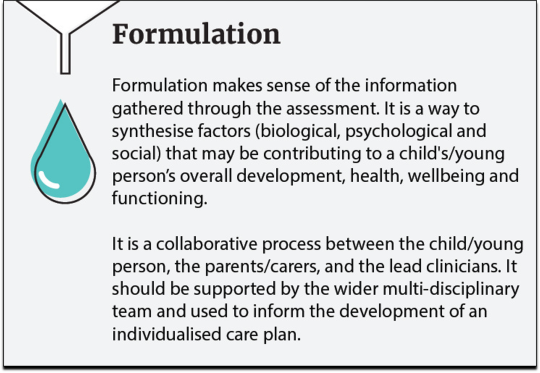
The report makes it clear that if any interventions are indicated, standard psychotherapeutic interventions for mental health conditions, as well as more specific exploration of gender-related distress (if indicated), will be the primary treatment. Referrals to endocrine interventions will only be accepted from the Child and Adolescent Mental Health Services (CAMHS) with onus on the clinician making the referral to demonstrate to a centralized team that includes members not directly involved in the care the medical necessity of cross-sex hormones. As mentioned elsewhere, Cass recommended extreme caution in prescribing cross-ses hormones to youth, and the NHS has committed to updating its current cross-sex hormones policy to align it with the final report recommendations.
Recognition of the need to update the diagnostic categories to meet the changing clinical presentations of gender-related distress, and the phenomenon of detransition.
The Cass Review subtly but powerfully signals that the DSM-5 “gender dysphoria” diagnosis appears to be preferred by most clinicians, while the attempt to “de-pathologize” the condition in ICD-11 is less clinically useful.
At the same time, the report recognizes that neither of these diagnostic categories are adequate for the current complexity of the presentations. The diagnosis itself was criticized for relying on outdated notions of preferences for sexed stereotypes from “previous decades,” and the “DSM-5 diagnostic criteria for gender dysphoria has a low threshold based on overlapping criteria” leading to the risk of overdiagnosis and overtreatment. Further, the report indicated that the diagnosis is unhelpful in the care for the growing number of detransitioners as it does not have any specific categories for this growing patient population.
New focus on young adults.
The report recognized the new understanding of adolescent development and that adolescence does not stop at 18 but extends into mid-20s. Noting the disproportionate number of non-neurotypical individuals struggling with gender identity, the report noted that neurodiverse young people are particularly vulnerable “into their early 20s or longer because of their tendency to want black-and-white answers, and their difficulty in tolerating uncertainty.”
Consistent with that, the report recommends that the restructured approach to gender-dysphoric youth does not stop at 18, but subsumes the category of young adults. In addition, the report notes that while the provision of adult gender services fell outside of the review’s remit, several staff in adult gender clinics “contacted the Review in confidence with concerns about their experiences working in adult gender services.” Adult clinic “whistleblowers” shared that adult services experienced a similar influx of young adults, primarily females with complex mental health problems, presenting to adult gender clinics with an expectation of rapid provision of “gender-affirming” medical interventions, as well as growing numbers of detransitioners. The whistleblowers expressed deep concerns about the harm to the vulnerable population of young adults which seemed to represent the same demographic that began to be seen at the Tavistock a few years ago.
As a result, the review recommended a heightened focus on the adult services, and the NHS has responded by announcing an investigation into the adult NHS gender clinics.
Call for the development of new treatments and clear clinical targets.
The review recognizes the the evidence base for psychotherapeutic approaches to the management of gender dysphoria in youth is very low quality. At the same time, the report pointed out that standard therapeutic interventions for distress are the standard of care in medicine, and that no studies of the application of this approach to gender dysphoria have shown harm.
The review stated unambiguously that the “ultimate goal of any intervention is to help the child or young person to function and thrive, they need to be provided with tools and strategies to give them the best opportunity to do so.” The review called for the development of an “explicit clinical pathway for non-medical interventions, as well as a research strategy for evaluating their effectiveness.”
With this recommendation, the Cass report has redirected the clinical community towards the development and study of non-invasive clinical interventions with a focus on long-term outcomes, with the goal of helping young people achieve the best quality of life.
SEGM Take-Aways
The single most salient take-away is that the so-called “gender-affirming” model of care, which treats young people’s declarations of transgender identity as an indication that any physical body modification desired by the young person is medically necessary, is over in England. So is the era of the “gender-clinic model of care,” which exists to operationalize the highly medicalized “gender-affirming” care model.
We end our take-away by pointing the readers to a powerful editorial by the BMJ Editor in Chief. The entirety of this short editorial is worth reading, but we will highlight the more salient quotes below:
“Offering treatments without an adequate understanding of benefits and harms is unethical. All of this matters even more when the treatments are not trivial; puberty blockers and hormone therapies are major, life altering interventions.”
“Without doubt, the advocacy and clinical practice for medical treatment of gender dysphoria had moved ahead of the evidence—a recipe for harm.”
“...Families, carers, advocates, and clinicians—acting in the best interests of children and adolescents—face a clear choice whether to allow the Cass review to deepen division or use it as a driver of better care.”
This analysis, published by the Editor-in-Chief of one of the most prestigious medical journals in the world, signals that the implications of the Cass Review will likely reverberate worldwide. It now appears inevitable that the arc of history has bent in the direction of reversal of gender-affirming care worldwide, although in some countries it will take considerably longer to change medical practice.
The Cass Review is a historic document the significance of which cannot be overstated. It is also multi-faceted, and no single analysis can do it justice. We have done our best to synthesize the most salient aspects of the review after a single reading. We have no doubt that we missed other important aspects and we trust that others will point them out.
#SEGM#Society for Evidence Based Gender Medicine#Cass report#Cass review#Dr. Hilary Cass#Hilary Cass#NHS England#National Health Service#gender affirming care#gender affirming healthcare#gender affirmation#medical scandal#medical malpractice#medical corruption#religion is a mental illness
12 notes
·
View notes
Text
I normally agree with criticisms of monogamy i see on this site, but I don't see why some posters need to act incredulous about why a woman would feel upset that her husband cheated on her. straight women are rendered interchangeable under patriarchal relationship dynamics, and most straight women understand on some level that commitment from her partner can only be conditionally achieved through unrequited appeasement (via appearance, demeanor, household labor, being able to endure xyz, basically acting like a dog). her whole life becomes about "love", but "love" is functionally just resource management. she comes to interpret his loyalty (regardless of his emotional unavailability or behavior) as repayment for her services. cheating shatters the illusion of this agreement.
maybe it's a contextual thing and they're thinking about a particular group of women(<- best faith interpretation), but when I think about women from my mom's generation who were convinced that they "loved" their husbands while their husbands would cheat on them as an extension of how little they could get away with taking their thoughts and feelings seriously under heteropatriachy, it's bizarre to only focus on her reaction and not the....context.
48 notes
·
View notes
Text

Y/N'S GROUP !!

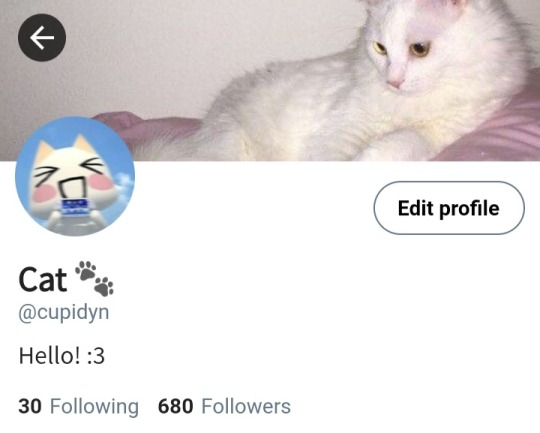

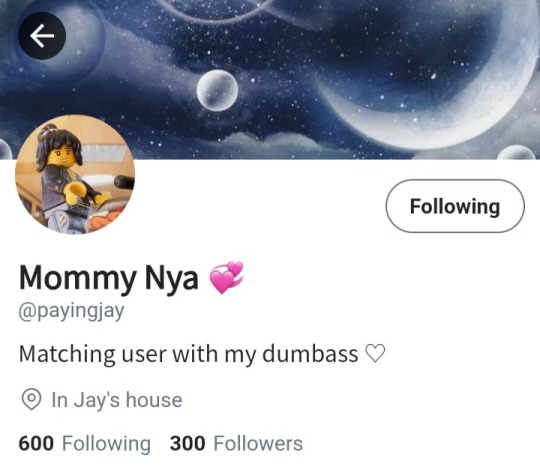

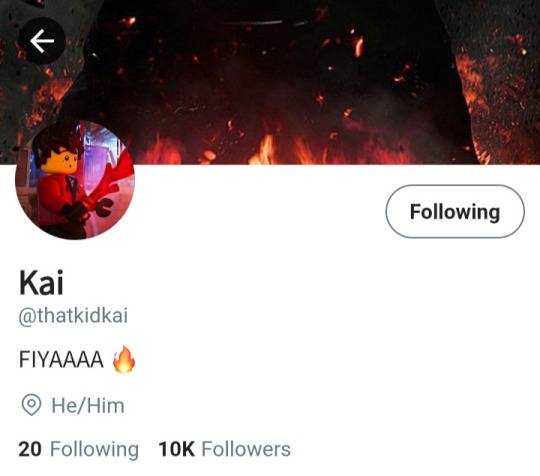
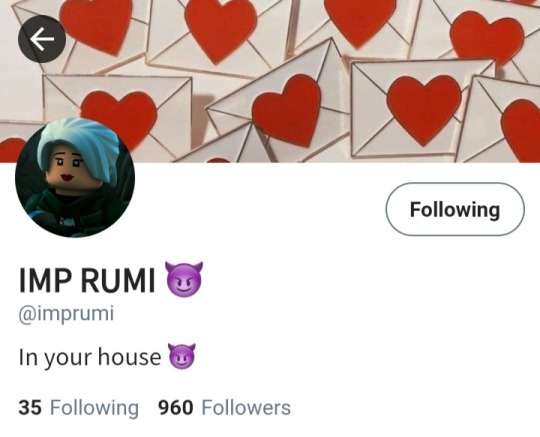

Y/N ; You are a Art History major. You focus on the development of visual art, such as paintings, sculptures, engravings and drawings.
NYA ; Nya is a Business Major who also has a family business. She seeks a broad-based education in many areas of business, with the option to specialize.
JAY ; Jay is a Public and Social Service Major. He focuses on the theories, principles, and practice of providing services to communities.
KAI ; Kai is a Martial Arts Major. He helps people understand the history and background, language and cultures associated with fighting.
HARUMI ; Harumi is a Psychology Major. She develop a broad understanding of human behavior as well as the skills to understand and interpret research findings concerning human behavior.

#ninjago#ninjago fanfic#ninjago smau#zane x gn reader#ninjago x reader#ninjago x Y/N#ninjago fluff#lego ninjago
62 notes
·
View notes
Text
รєא ฬ/ ץ๏ย 🫵🏽 Ŧг๏๓ ץ๏ยг ๔єรՇเภє๔ קєгร๏ภ 🍇🍸🫄🏽

Omgggg Thank y’all for the love on my last PAC! This is the first time I’ve done a 18+ reading so please give feedback so I can improve. Enjoy the reading! Also thanks for 100 followers 🐞
I also added music interpretations this time!


18+ | Minors DNI | Pic an image below 1,2,3,4,5



Pile 1 - The Monarchs
I get a sense that you liked to be serviced. All eyes on you (pillow prince(ess) vibes🤴🏽). You might also appreciate group dynamics. You enjoy the sense of being protected, swept off your feet, and so on. You might be a virgin or fairly inexperienced because your destined person thinks you need help in the s*x department. This could also mean you’ve never orgasmed or had a truly pleasurable experience in bed. Your destined person is going to show you how to reach climax, pleasure yourself, and overall enjoy sex. Lmao I heard ‘super soaker’ so you might be a squirter or they just love how they can get you that turned on. Your DP loves your cum. The taste, smell, texture. They love fingering you and feeling inside of you! Also your destined person sees you moving away from old sexual habits leaning to the more hedonistic side. Basically, they’re here now so you don’t need that other stuff and/or you can find new stuff together :) They just want you to be safe. Your DP is a giverrrrr. I’m seeing gifts in the physical like lingerie and toys. Some of you might be long distance or you and your DP spend a lot of time separated due to work. These toys and gifts are important for keeping y’all connected on that intimate level while away. I also think your DP will want to experiment and have fun in the bedroom. They’ll do anything to get to close as you as possible lmao (not in a creepy way tho). Also for gifts, they’re also ‘packing’ and love to offer said package 😅. I’m also seeing that they like to treat you. It turns them on. It’s giving paypig energy. You are their god(dess) and they are a devout follower. (Sidenote: they love to give you head. They take pride in it. How they can make you cum from their mouth alone or fairly quickly) Back to what I was saying, they want you to be high class, dressed up, just exquisite. They like when you swallow their cum.
From the songs, you expect devotion. Your partner should give you all your desires and more from gifts to orgasms. You may not be actually accepting of this energy when it comes to you. In the beginning of your relationship, sex may not be the focus. You or your DP will want someone they can trust. You’ll need to build a bond to be willing to go deeper with this person. Tbh you talk the talk but don’t walk the walk which is valid because a lot of you are inexperienced in either sex or relationships in general. Your DP knows they have to earn your trust and wait for you to remove the guards you have up. They want to promise themselves to you or the other way around. Sex with you is more than sex its an agreement of sorts and your DP understands that. They will be in love with you and will pursue sex with you from that but you may not believe these to be their true motivators. you’re honestly very suspicious of other peoples desires to be with you sexually (which i totally understand and your DP does too) they are going to try really hard to not push and patiently support your desires to not have sex right away or accept certain gifts, or wait to be vulnerable with them.
Tidbits: Hotel, car, money, gloss, soaked, gown, evening, party, gala, trip, work
I hope you enjoyed your reading! I appreciate all likes, reblogs, and feedback! Please visit my masterlist for more PACS, Ask Games, Paid Readings and more!

Pile 2 - The Sweet Talkers
Lmao!!!! I gasped at every card I pulled. You know how to work your destined person. Whether their submissive or not, they are WRAPPED around your finger. Sheesh, they got it bad. Say something and it’s yours. Peep the mouth next the the photo. They like when you talk in your ear. Your words just, control them. They pierce through the most vulnerable aspects of them. A caregiver kink may be present. Although your words can be sharp they can also be comforting. On one side, you demand a certain standard that your DP loves to meet and then on the other, your just holding your DP like your sweet baby. Some of you may be interested in or your partner is interested in group ‘play’ and/or dual penetration. A foursome may happen or having multiple toys inside you or your partner. BDSM, bondage, pet play may be of interest to you. Some level of confinement and restrictions. This could also represent edging. You might also use sex in your relationship to ease tensions from work, arguments, or past pains. (Please be careful to also release these in other ways as-well) I also think sex frees the both of you from your daily worries and the illusions about one self. Physical touch could greatly help your partner or you heal certain insecurities and wounds. Lmao after y’all do the do y’all are so care free. All your stress, gone. Lmao scorpio/7h/prominent mars placements. Sew swings might also play a role in the bedroom or toys that keep someone open for the other.
Based on your channeled song, they want give everything to you. And they want you to take it. A lil forceful or greedily. You have all parts of them and you using their body is a gift to them. They might also like to roleplay with power imbalance. Maybe y’all have RBF or you just exude a strong energy but it turns them on. They want you to see them as beneath them during the act. You have control and they want you to toy with them and their emotions. They might want you to ask them to prove their worth to you. Why should your destined person get to lay with you. I see your DP with big puppy eyes just looking for your acceptance and approval which plays back into the caregiver thing I mentioned. Degradation and praise kinks are heavy.
Tidbits: Poly, swingers, leash, rope, confined, mark, choke, slap, arm, furniture, bars, Lick this pu$$y, neck, back, crack
I hope you enjoyed your reading! I appreciate all likes, reblogs, and feedback! Please visit my masterlist for more PACS, Ask Games, Paid Readings and more!

Pile 3 - The Craftsmen
Um, I feel like sex with your Destined Person involves a penis. If that doesn’t suit you this may not be your pile. I will keep it body inclusive but heads up. Their is an emphasis of hands on wands here so I think they like you to give them handjobs, finger them, in general using your hands and gripping. This person literally loves what you do with your hands. You may have redefined handjobs, fingering, etc for your DP. The way you do it is simply life changing. I feel like you take your time with your hands and show your DP new ways of using them. Straight up doing things they never expected. You may be more kinky or experienced than your DP. Or you just have some hidden knowledge. You take your time to get to know your DP’s body and how to work it. You can tell exactly when to switch it up or ride it out. It’s some kind of sorcery to your DP. I went to get more clarification AND THERES JUST MORE WANDS lmao. You reciprocate an energy with your DO that they’ve never experienced. You both find joy in pleasuring your partners that the give and take ends up being equal because you’re both so focused on giving. Your DP sees sex with you as a mini (or not so mini) retreat from everyday stressors. Your hands after a ling days work is heaven. More than they could ever ask for. You both might enjoy morning or afternoon sex.
From the songs, you are skilleddddddd. You know how to work your magic! You can turn someone on and pleasure them in ways that is frankly miraculous. Like how many people can ACTUALLY say Sex with Me actually resonates 😭 You do what you need to. Literally sex does not get better than you and it’s addicting. You can turn your DP on from a text alone. When you want it, you can have it. If you don’t feel this experienced this will come later in the relationship. Your sex life with your DP spans years! They are literally obsessed with you and your body. Your relationship is so homey that the sex comes naturally. They love seeing every inch of you and worshiping it. In the beginning of y’alls sexual endeavors or prior they will just be confused as to how they got your attention and even more so that is real love. They like to take away your stress with sex. You have a lot pent up due to your responsibilities and they want to deal with it for you.
Tidbit: Garden, Apartment, daytime, lunch break, coworkers
I hope you enjoyed your reading! I appreciate all likes, reblogs, and feedback! Please visit my masterlist for more PACS, Ask Games, Paid Readings and more!

Pile 4 - The Bratz
Sex with you is almost like a fight? You may be bratty or rather dominant. You want what you want. You DP sees you as someone who is commanding. Also they may think about how other people want you, but they simply cannot have you. Their possessive but also very appreciative that you chose them. They like to use toys on you. They like the push and pull of being sexual with you. Some of you may be dominant in a submissive way???? Like you don’t do typical dom things but your very adamant about getting you way. They like to watch you. Seeing you get changed, being above them, just you. They want to be overwhelmed by your presence during the act. If your DP has a penis or likes to use a strap, they love penetration. Being inside of you is one of earths greatest treasures 🥹. If you like to penetrate then you DP thinks you lay goodt pipe. They like to cum in you or like when you cum in them. They may also like your androgyny or your tendency to live outside of gender roles/norms. Sex with you is consistently a good time. You might have turned their world upside down or changed their perspective on sex. Y’all like to play with each-others senses. Being blindfolded, tied up, and left in suspense waiting. They might also like to tickle you or use floggers. Anything to build the sensation. Sex with you is not just about the act but everything that led up to it. Whether it be date night, or you teasing them all day. There is an emphasis on waiting. They also probably love to tease you to bring out your bratty side even more. Especially if they don’t see this part of you often.
You are powerful. Your DP see you as a boss and also very bossy. Your aggression, power, and the way you express it can be very masculine and they love this. OHHHHH you and your DP are competing in the bedroom. Like who can achieve what. Who submits first. Who gets stimulated faster. They want to prove their the better lover 😗 but y’all are both so cocky. It wont happen. They also love how you aren’t afraid to confidently think your above them or better in some ways. If y’all share careers or goals, these achievements could also make their way into the bedroom. You have a way with them. They don’t get it and nobody else does either. They always want to see you or be with you. Your DP has a high sex drive, but specifically for you. Either your chest is very beautiful or you um…make them bust 😅. You might be from different worlds in a sense and those attributes you have from how you were raised make you so sexy and desirable. Your very amusing. Your uniqueness is a turn on.
Tidbits: dressup, doll, touch, smell, graze, tingles, spine, workshop, kinkster, shield, nudes, bust
I hope you enjoyed your reading! I appreciate all likes, reblogs, and feedback! Please visit my masterlist for more PACS, Ask Games, Paid Readings and more!

Pile 5 - The Preformer
I feel like this pile, at least in the bedroom, can be very dainty or highly feminine. They love this about you. Your moans, movements, and so on just scream cutesy and your person loves this. They see you as someone to protect and when they see you in this state it just proves to them even more that need to watch over you. It makes them feel needed and desired in a way they can’t explain. They also see you as entitled and high maintenance. Meeting your needs can be a tall order, but worth it in the end. They probably like you to dress up or perform for them. Maybe a strip tease or even just walking around in your clothes. You are simply sexy to them in all ways. They like that you keep this vulnerable side to you hidden. They may feel as though nobody could predict the person you are underneath meaning only they know. The way you hold and touch them makes them feel alive. You also might make them cum prematurely. They also like how manicured you are. You put so much attention into your appearance and apart of that drifts away in the bedroom while somethings stay. Like your nails are still their but your fully bare and open to them. Almost stripped of all the ways you hide or armor yourself. They see this as taking a great deal of trust and live that they’ve been chosen to see you. Like I said before, preforming is something you do well and they love how you can role-play or put on different acts to satisfy their needs.
From your songs, sex with you from your DPs perspective is like a relaxing afternoon. Like at Central Park on a summer day and there’s a nice breeze (that’s legit what i’m visualizing). You remind them of fresh linen. So light, airy, soft, and welcoming. Also your DP may be a foreigner and that adds a layer to your intimacy because how did they meet you among all the chaos of the world. They like to see you in designer and high quality. When you wear stuff like this around them it’s a treat. Like you walk in to a room at a party or wherever and their eyes find you and they melt. The Dominic Fike song is like their fantasy. Everyday with you is so loving. Your DP is so romantic and so is y’all’s sex life.
Tidbits: Yoga, leggings, dance, toes, Nail extensions
I hope you enjoyed your reading! I appreciate all likes, reblogs, and feedback! Please visit my masterlist for more PACS, Ask Games, Paid Readings and more!
See Ya,
ᴊᴜɴᴋʙʙʏ к๏ฬ
#intuition#spirit guidance#healing#gratitude#tarot pac#pick a picture#pick a number#pick a card#tarot messages#tarot reader#tarotblr#tarotcommunity#tarot reading#tarot witch#rihanna#18+ pac#18+ readings#Junkbby Kow#intuitive readings#intuitive#collective#collective reading#general reading#jazz#dominic fike#shygirl#tizrah#jhene aiko#nicki minaj#young thug
87 notes
·
View notes
Text
“It is important for the whole Church that welcoming the poor and promoting justice not be entrusted solely to “experts” but be a focus of all pastoral care, of the formation of future priests and religious, and of the ordinary work of all parishes, movements and ecclesial groups. In particular — this is important and I say it from my heart — I would also like to ask religious institutes to interpret seriously and with responsibility this sign of the times. The Lord calls us to live with greater courage and generosity hospitality in communities, in houses and in empty convents. Dear men and women religious, your empty convents are not useful to the Church if they are turned into hotels and earn money.”
- Pope Francis, VISIT TO THE "ASTALLI CENTRE", THE JESUIT REFUGEE SERVICE IN ROME, 10 September 2013
14 notes
·
View notes
Note
I saw your post about free readings.. I would like a natal reading
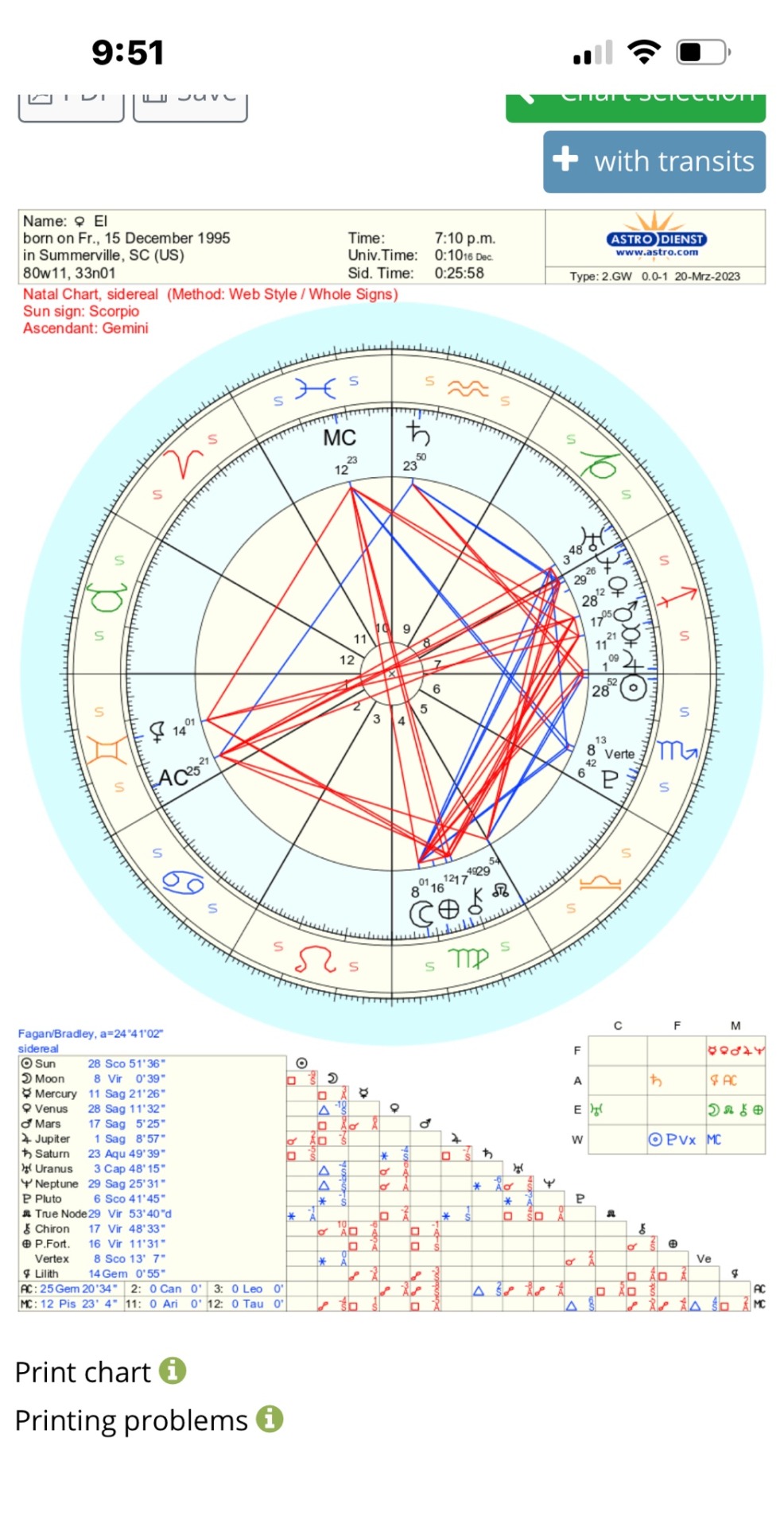
Natal Chart Reading:
disclaimer:
many of the negative interpretations of specific placements and aspects could not manifest if the native grows up in an environment where the tensions are well-managed and used as opportunities for growth, the potential of the clash is there but like everything in astrology, it can be handled both positively or negatively.
a birth chart is extremely complex, so there are always more things to say, so please keep in mind that as detailed of a reading as this could be, there will always be more things to learn.
BIG 3:
6h Scorpio Sun ruled by 6h Pluto and 7h Mars, square 4h Moon in a scorpio degree and 9h Saturn in an Aquarius degree, conjunct Jupiter, in a cancer degree:
you seek depth and substance in every aspect of your life, the type of person to focus on every detail and not be too fund of the mundane. You might have heard jabs here and there about how you look way too deep into things, but you just happen to see deeper than the superficial side of things.
you seek to hold control in the workplace and have enough authority to self determinate in your job. You could prefer to own your business or to have an arrangement that allows you full control on most aspects of your job. You might be scared of losing control over your routine and daily life.
you could be prone to headaches or STDs. Make sure your partners are clean and safe.
You could be one thought away from spiraling everyday, prone to anxiety as well as overthinking daily social interactions which could manifest in social anxiety, or self-esteem issues. Be careful of letting your relationships control your mental stability, or attempting to micromanage other people.
you could find that your ultimate desires in life, worldly ones specially (recognition, wealth, fame, popularity…) clash with what brings you emotional satiation. You could crave being surrounded by a group of loved ones, building your own family and dedicating your time to your safe space and family -including the one you choose. However, you could also crave autonomy and being recognized by most of the people you interact with daily and not simply your family.
Alternatively, the conflict could be between your desire to be of service to people, to help them overcome emotional hurdles and their dark moments, regardless of whether they appreciate or even recognize your efforts that cost a lot of your energy VS only focusing and what brings YOU satisfaction and only truly helping those who were here for you as much as you were there for them.
you could’ve also grown up in a household charged with tension, or ego clashes between your parents: on one side, a more family-focused but critical mother, who might’ve been either very self-deprecating and unconsciously ingrained you with self doubt and anxiety, or could’ve been straight up obsessed with molding you to her expectations of perfection. and on the other side, a father who might’ve either travelled very often or was very busy with his higher education and aspirations and was relatively absent, might also have been as strict as the mother but more on the matters of education and discipline. Nevertheless, the father could’ve been irresponsible towards the native and undisciplined. A father who might’ve been disciplined when it comes to their own aspirations but not so much towards the native. He could also overindulge at times, and might’ve been very lucky with business deals and partnerships.
You could’ve struggles with spirituality a lot growing up: might have had some form of religious trauma or simply felt put-off by religion, this however could’ve changed as you grew older especially after your first Saturn return. You could also find blockages were very frequent when it comes to traveling or pursuing higher education.
Despite all these limitations, you tend to be very determinate when it comes to overcoming the obstacles and limitations you encounter, and the latter end up making you grow into a stronger, more mature person.
you could’ve always had a deep curiosity about the world and a desire to acquire wisdom through studying its. This could’ve led you to either finding it an interpretation of the world through religion or coming up with your own ideologies. you could also have a pretty skeptic view that refuses to accept beliefs based on faith only.
you could be extremely generous and a big dreamer. You don’t like to limit your aspirations. You have this incredible presence that’s noticed by people around you, like a superstar, and you just look like you were born to be on the spotlight. you’re very magnetic and might find yourself inspiring happiness in people and helping them take big leaps that might’ve otherwise though to be overly-risky.
Gemini rising with Lilith on the ascendant, ruled by 7h Sagittarius mercury in an Aquarius degree:
your chart ruler is in fall, which could push you to have a hard time relating to any of the Gemini rising traits. you might not be as malleable or flexible in your opinions as a Gemini would be but might find yourself with a “preacher” sort of attitude, you might be very hard to sway out of a conviction and might influence people surrounding you to believe the same, however, you’re still plenty open-minded and like to expose yourself to new information constantly. The upside though is that you’re very influential especially when it comes to one-on-one interaction. Nevertheless, you might still relate to the “chameleon” traits of Gemini risings as Sagittarius is mutable too, you could also be very curious and constantly crave to learn new things
with the Virgo moon Scorpio sun combo, your close circle may see you as the person to talk to when they feel down and need a pep talk.
7th house stellium: righteous type of individual, the social justice warrior of your circle. You learn about yourself through others, so relationships are an important focus of your purpose in this lifetime. Pay attention to what relationships make you happiest, which ones make you learn more, and which ones stunt your growth.
random aspects:
Neptune conjunct Venus: be careful of idealizing your partners, rose-colored glasses,
Uranus in the 8th house: you might realize that uncomfortable changes come to you extremely suddenly shocking you in the process. you might be uncomfortable with emotion but you’re one with the collective and your social network, as well as aware of trends.
Pluto trine MC: coupled with the 7h stellium, you know how to instantly read a room.
hope you find this accurate <3
#sorry for the delay i've been extremely sick for the last two weeks TT#natal readings are so hard to me bc I always wanna added details upon details and it ends up being a monster#whole time its barely past the big 3#anyway this is my frist time posting one publicly instead of doing it irl or in dms#so I hope it's accurate ahhhhh#anyway#rouhanswers#natal chart#astrology readings#pluto trine MC#8th house uranus#neptune conjunct venus#7th house stellium#lilith ascendant#sagittarius mercury#scorpio sun#6h sun#6h pluto#7h mars#virgo moon#4h moon#gemini rising#sun conjunct jupiter#virgo#gemini#sagittarius#scorpio
37 notes
·
View notes
Text
this is much more of a personal complaint than a deep musing on the nature of fandom as a whole, and since it is personal I welcome other perspectives and I would appreciate discussion about it. mostly, I want to speak about this because it’s more immediately painful to me than even the Finrod-as-Mighty-Whitey situation, and I’d welcome anything anyone else has to say.
I’ll begin with the point I’m trying to make: it’s extremely alienating to see people pay lip service to the concept of wanting a diverse vision of Arda and then primarily reblog or engage with fanart where everyone, even characters with relatively long-established fanon where they’re black or brown, is white. it feels hypocritical, and is frankly one of the most upsetting parts of being on Tumblr. it keeps me out of character tags, and makes me wonder if being part of the wider community is worth it when I’m not interested in furthering that aesthetic.
I’m not saying that the act of giving engagement to these pieces is inherently racist. the situation is significantly more complex than that, and no one (as far as I know) is actively doing this on purpose. I want to have a conversation about this, not come out swinging.
I’m aware that for whatever reason the Tumblr fandom is going through a period of “everyone is white”, and that as a result for characters like Fingon the only art that’s getting made is of white people. I also understand that since these are books, everyone is free to interpret characters however they please.
what I am saying is that I don’t understand why there’s not been more pushback against that shift. when the idea to make Arda more diverse first emerged, it seemed to be a welcome change that made left-leaning online fandom spaces more inclusive and took a stand against the more vocally racist groups who love Tolkien’s works for explicitly racist reasons. even though this blog is new, I’ve been a lurker here for a long time, and I’m not sure what’s changed that means suddenly we’re all not just tolerant of but glorying in the presence of overwhelmingly white (and heterosexual, but that’s a topic for another day) fanart and fancasts.
I suppose it was unrealistic of me to assume that a largely white fandom was actually invested in racially diverse visions of the cast of these books, instead of merely going with the flow. there’s also a chance that several people have simply left the fandom, and the new artists aren’t aware of long-standing traditions. but this shift makes me (and, I’m going to guess, many other fans of color) feel alienated and unsafe. it makes me wonder why anyone bothered supporting diversity in Arda in the first place, why they crafted a space I felt comfortable in only to pull the rug out from under me. a commitment to diversity doesn’t just mean highlighting creators of color or joining in on the zeitgeist. it means consciously prioritizing nonwhite depictions of characters, or at the very least giving them equal space with white ones. it means following and engaging with editors and gif makers and graphic makers and fanartists who focus on representations of a nonwhite Arda. it also means learning how to spot which artists are (consciously or unconsciously) racist in their depictions of the characters, and not engaging with those people.
I am aware these are irrational emotions, and I’m inviting conversation because I would like to get a better understanding of the reality of the situation. in fact, the above paragraph is as kind as I can manage to be because I know I’m being irrational. but I gave voice to my feelings because I wanted people who might not be aware of how upsetting it is to be told “you’re not welcome” simply because you only ever see people who look like white Europeans in a space that is not required to be inherently white or inherently European. I can take vocal racism and dismissal from people who I already know are going to dislike me. finding out that spaces explicitly framed as inclusive and welcoming when it comes to racial diversity don’t seem to be interested in prioritizing the inclusion of characters of color is more upsetting than being told “you’re a racist for saying Finrod is often depicted as a white savior” (something I was, in fact, actually told, and something I’m still attempting to understand).
the simple fact that I feel as if this space is inherently less welcoming to me does not automatically mean that there is actual hostility. I also know that there are older works, and that the characters who are most popular right now were always seen as white, regardless of whether or not they actually were white in the text.
but I would like to say that going into a character tag and only seeing white faces is extremely disheartening. it used to be the truth that any number of conceptions of a character were present. why can’t we go back to that?
#silmarillion#silmarillion meta#I really would like people to give their thoughts on this#please reply and reblog and I'll respond to as much of it as I can#as usual racists will be blocked though
111 notes
·
View notes
Note
have you ever had sign language interpreters at your show? any interesting or mildly interesting stories?
JF: I have no HOT GOSS about interpreters, but we have done many shows at performance arts centers and festival with signing folks. I must say I do admire their dedication on every level-their attention to detail with lyrics (not too easy) their service to the idea while not pulling too much focus (also not too easy) and just their maintaining the fun of the event. They seem like a very interesting, self-selected group of double cool people.
50 notes
·
View notes
Note
I'm Jewish and I think I have an interesting perspective on 'bible as a narrative'.
So a lot of Jewish holidays, namely Channukah, Purim, and Passover, specifically focus on telling stories. The way we celebrate those holidays is by telling the story of the holiday. I won't say there's no morals assigned in these stories but it is just a story and we can take what we want from it.
There's still a lot of morals and laws in Judaism but there's no eternal damnation, just choosing to be a good human or not. I'm very lucky that religion is healing and joyous to me, I know it's not that for everyone.
Idk what I'm saying but like. I've only ever seen the Bible or the Torah as stories. Stories that might be true, stories that might be fictional. Stories we can learn from, stories that are outdated and we need to discard. It's just about finding what makes you happy.
I've really enjoyed the religious studies I've taken but I recommend doing it through a secular institution and not a church.
This really is incredible that you are able to interpret all those stories and have the freedom to apply them to your life and find meaning wherever you want to in them.
The kind of religion that the Christian Southern Baptist raise you in is one where the Bible is translated extremely litterally, and is considered a higher authority above any government or law on earth with very little room for interpretation. They raise you to believe that the Bible is a kind of history book and rulebook that you must follow, or else you will be tortured forever in a fire and brimstone eternal damnation. They litterally tell children that if they don't obey God they're going to this hell, which is a real place that you can't escape from after you die.
Its also weird because they teach it to young children like it's a storybook and then as a rulebook once they mature.
So Lots of Churches have something called "Sunday School" where, while the adults go to Grown Up Church, children are sent to learn about the Bible like it's normal academic school.
They teach you that Jesus and God are just as real as George Washington and Cleopatra. And that if you don't believe it or if you ever question what we say about God then you're going to that also very real place when you die where you will painfuly be physically tortured forever.
This goes on until late middle school to high school where Sunday School turns into Youth Group. For me, youth group was more summer campy go hiking and community service learn about God, but there also was an obsessive push for young teens to start trying to convert their friends by bringing them to Youth Group.
On the outside it gets advertised as a kind of club or summer camp that hosts parties and camping trips and stuff, but it all revolves around learning about God and the Bible. "Mission Trips" were supposed to be you get to go on vacation and teach other people about how cool God is while helping the community. When in reality it's when they get a bunch of teens to help convert and recruit vulnerable people into a religion that many of them had no choice but to be apart of.
I believe the older you get the more "freedom of interpretation" you're allowed to have of certain topics, but the concept of heaven and hell as real places and Jesus and God being as real as George Washington and Cleopatra always remained litteral and absolute.
The way you describe Judaism just sounds so much more freeing than anything I was taught by the Southern Baptist Church. Maybe I was just in a particularly cult-y sect of Christianity but a lot of these things were universal at almost every Church I have ever been to.
#unlocking the religious trauma pandoras box tonight i guess#now there are parts of this that are not malicious in it of themself but specifically the kind of religious community i grew up in#but im pretty sure my religious upbringing was almost strictly southern baptist#also weird thing is that i was always under the assumption that catholicism was a completely separate religion from Christianity#and that catholics were going to hell because they didnt believe that Jesus was like God2 and just as important#anyway hope my rambling makes sense lol#religion#cw religious trauma#cw christianity
54 notes
·
View notes
Text
Essay: Picture vs Painting

Johannes Vermeer. Girl Reading a Letter at an Open Window. c. 1657–1659.
For Francis Bacon, painting was “mysterious because the very substance of the paint, when used in this way (of idea and technique being inseparable), can make such a direct assault upon the nervous system; continuous because the medium is so fluid and subtle that every change that is made loses what is already there in the hope of making a fresh gain.”
Material is everything, the energy and emotions associated with the material all the more important. One of my teachers, Lorna Ferguson was so pleased with me getting paint on any and everything (much to my personal dislike at times as I valued some of the objects I had ruined to create something); for a while I could not understand the marvel, as I thought; ‘well, what other way is there to work with said substance.’ It never occurred to me, at least in the way of the artists mind, that painterly was being concerned with making the idea and technique of painting inseparable. I won’t speaking on being (an artist) - hard as it may be, but I’ve covered that in my previous article - but focus on the idea and the substance.

Michelangelo. David. c. 1501 – 1504.
Another one of my teachers, Ricky Burnett spoke of the ‘history of a painting’; which I interpreted as the realm of the invisible. I believe the object has to take up space in a way that it too exudes an energy, an idea that is made more complex when there are sentients in the space, it ultimately speaks to its power, of which is the result of its creator, involuntary or not. I have an issue when the objects is of nothingness, static and unimaginative. Minimalism is a great example of this, namely in the art of architecture, photography to painting itself. How can it be said that an object carries any sort of character if it is pristine, wherein it’s function has no interest in the material as forming part of its function and results in its being fixed and changeless. It is a result of such functionality, or rather, lack thereof that the object carries no sense of presence in that it becomes just another object in space disconnected from its surroundings, thus ultimately alienating itself from humanity.

Ricky Burnett. Troubled with Goya 3.

Ricky Burnett. High Windows 2.
The makings and process of the objects should in themselves be studied, understood and appreciated in their materiality, most importantly in a way that they take into account the service to humanity and its relationship with time, history and ultimately the heritage of mankind’s culture. I believe that with this approach, humanity serves the object too resulting in a relationship that is ultimately symbiotic. The concept of symbiosis is one some artists and a larger group of designers have let go of, it makes the work easier, quicker and at no real cost to produce as it cares not of what it is in service of or to whom and as a result of its innate purpose.
The realm of invisible is learning to make these connections, meaningful ones with all that is around us and we’ll begin to feel, most importantly, interpret in the way of our individual being. Because you see I believe that the process is reflected in life of the painting/object - take for instance a Vermeer who layered multiple layers on thin glazes of paint each carrying their unique emotional state of the artists or Michelangelo labouring for just over 3 years on his David sculpture). The lack of such connected process results in an art that does not appear to show signs of time or even care for it; objects lose identity as they disconnect themselves from their creator and, most importantly, the generations they are a result of, leading to a worthlessness to the object. Such worthlessness is dangerous because objects lose any sense of importance, as having nothing to say to anyone or reflect on anything, a disconnect that dismisses their desire to be preserved; this is how a people are erased from history. Minimalism is now a job for artificial intelligence, the insentient.

King Koi Konboro. Great Mosque of Djenné. Thirteenth century

Donald Judd, 15 Untitled Works in Concrete, 1980-1984.

Sir Giles Gilbert Scott. K6 (Kiosk No. 6). 1935.

#painting#design#architecture#vermeer#michelangelo#david#sirgilesgilberscott#telephone#great mosque of djenne#rickyburnett#FrancisBacon
10 notes
·
View notes
Text
People's general mental health and anxiety symptoms hardly deteriorated at all during the pandemic, research suggests.
Most people are resilient and made the best of a difficult situation, it says.
The BMJ review analysed 137 studies, most from high-income European and Asian countries.
Depression became a little worse overall and among women, older people, university students and those belonging to sexual or gender minorities.
Other studies have found women felt the impact of the pandemic more because of the jobs they do and the role they play in family life.
...
The review did not focus on lower-income countries, or children, young people and those with existing problems, the groups most likely affected, experts say, and risks hiding important effects among disadvantaged groups.
"There is evidence from other studies of considerable variation - with some people's mental health improving and others' deteriorating," Dr Gemma Knowles, from King's College London, said.
"This may mean no overall increase - but this shouldn't be interpreted as suggesting the pandemic didn't have major negative effects among some groups."
Other studies suggest the pandemic increased mental distress for particular groups, such as children, young people and parents in poverty.
...
As many as one in six seven-16-year-olds and one in four 17-19-year-olds in England had a probable mental disorder in 2022, an online NHS survey found, up on previous years.
Separate NHS figures show the number of children in contact with mental-health services rose by nearly 30% between 2020-21 and 2021-22, to nearly a million.
And in a survey by mental-health charity Mind, in 2021, about a third of adults and young people said their mental health had become much worse since March 2020.
Those most affected by the pandemic were people who struggled with their mental health before Covid.
Dr Roman Raczka, who chairs the British Psychological Society's division of clinical psychology, said the full picture remained unclear and more studies among people with health problems in deprived areas were needed.
...
"It's important to note that most of the studies in this review are from high-income European and Asian countries, so overlook the toll taken on some less visible - but more disadvantaged - groups," said Stephen Buckley, head of information at Mind.
I am losing my fucking mind.
#classism#capitalism#covid19#pandemic#mental health#lgbtqia#ptsd#depression#trauma#inequality#social justice#media ethics#white supremacy#neoliberalism#elitism#ableism#disability#poverty#bbc#worker exploitation#knee of huss#news
10 notes
·
View notes
Note
https://www.tumblr.com/struggle-but-its-all-ocean-floor/733360130139226112/even-despising-michael-jackson-jungkook-looked
^ Some thoughts I had on this :)
Imo I’m actually glad they expanded the crew, because I think they added 2 of the better dancers (for this context) to the SNTY lineup… Ian Eastwood and Vinh Nguyen. Like you said, all of the dancers are super well known in the dance world and definitely highly technically skilled but they don’t necessarily move in the same way. That’s something that could definitely have been improved with drilling the choreo more— the reason Sienna and her crew did so well, is because they are consistently working as a crew, training together or as dancers on tour & in MVs. When you train with the same group of dancers and focus on building unified style and synchronicity, it shows in the performance. I’d say it’s a similar reason that BTS also moves so well together, they’re amazing dancers but they also have a sort of collective inner rhythm from training together for so many years. Likewise the many Seoul based backup dancers that HYBE usually employs, are part of a network of dancers that will have trained similarly or have already been working with HYBE/other companies for a while.
The SNTY dancers are some of the best but also they are all choreographers too, who have always focused on shaping and stylising movement themselves rather than drilling set movements so that they look exactly the same as the dancer next to them.
I think that was definitely a purposeful choice though, because like I said, they could’ve practiced more to make that happen if the lack of unity had been interpreted as a negative thing by the performance directors from HYBE. I think they were going for a ‘naturalistic’ vibe where it feels as though everyone has their own spin on the movement.
Anyway, personally I’m happy they brought on Ian and Vinh, as I think they are actually the two that are the cleanest, most precise, most aware of their facial expressions/aura and also know how to add their own flavour without centering themselves but instead doing it in service of the vibe of the song and their role as back up dancers.
As a professional dancer myself, I am ALL in favour of more recognition for backup dancers, as their work is so often are not appreciated as much as it should be, but I also agree that sometimes standing out too much makes the overall performance look less polished. Idk if this makes sense but I think Ian and Vinh— they dance with a lot of awareness and humility which I think is quite important when you aren’t the designated star of the show… in dance training it’s just as important to know how to support really well as it is to be skilled at filling the spotlight when it’s on you, and I think somehow that quality comes across more in their performances than some of the other dancers imo.
I'm not trying to discredit the work backup dancers do, and maybe Hybe didn't care about them having all different styles, but I don't like how they dance. There are some dancers I appreciate more - actually, Ian is the only one I noticed on the positive, and I don't think Vinh bothered me - but I think the dancers, as a whole, look quite bad. Jungkook looks better dancing, his dancing is more attractive. Also, Jake Kodish, who is apparently a Zionist, is absolutely terrible imo. He looks so uncoordinated and sloppy - he's not graceful at all.
Anyway, I personally think JK's dancers aren't doing him any favors. I'd rather him dance by himself or with his female dancers - or even with only one or two from the SNTY crew (like Ian) - or not at all.
I understand your perspective, but I think overall the dancers look ungraceful and brutish next to JK.
Edit: I actually tried following some of the dancers in the dance practice video, but apparently they aren't all the same dancers as in the MV? I noticed that Ian, while being skilled and great in his style of dancing, doesn't really move his upper body much so it looks like he has a neck injury (because of his specific brand of hip hop). Nick Joseph, who choreographed Butter and Drunk-Dazed - two amazing choreos - is in the MV, but he sometimes looks like he struggles with the moves? I liked him in the dance break. Dom Lashawn's apparently in the dance practice video and it's like he doesn't fully "finish" the moves? He never really strengthens out his legs or arms? This is a matter of personal taste, but I don't think it looks as good that way. Devin Pornel was the most "idol-like" imo and I liked him better. Brian looked like one of the least skilled dancers surprisingly? Yet, for the most part, his dancing worked the best, probably because he has strong facial expressions. I didn't like his posture and how he danced the chorus in particular. I didn't like how Jake Brandorff danced, it looked awkward, inelegant and clumsy. Jake Kodish is the same. His moves look really unfinished and uncoordinated? Lastly, Vinh Nguyen to me had the best gaze, but kind of lacked power?
I made a mess of the verb tenses, sorry haha.
I honestly didn't think anyone looked better than JK. They looked more like "real dancers" in many ways, but JK had more power, nicer lines?, and made the moves look the best.
3 notes
·
View notes
Text
Privilege and Nature Interpretation
Hey friends!
As I am embraced by nature's serenity, it is revealing that privilege influences even the most pristine environments. Have you ever wondered about how privilege transcends into our relationship with nature? Today I wanted to deliberate on the role “privilege” plays in nature interpretation and enjoyment.
I believe it is important to acknowledge that privilege varies considerably from person to person as it is shaped by a multitude of factors. Discussing privilege constructively is important, it raises awareness, questions harmful norms, and promotes diversity and inclusivity.
So what is “privilege”? I believe privilege refers to the advantages an individual experiences based on being in the majority demographic group. It does not deny universal struggle. Privilege brings essential awareness to the benefits that are present when an individual aligns with societal norms and power structures. Did you know that a significant percentage of the world's population does not have the opportunity to enjoy nature? It is important to recognize that individuals who find solace in escaping to the outdoors should be aware of the privilege that enables such opportunities. Experiencing nature without usual comforts and the ability to return to the comforts of home are privileges not all have.
In nature interpretation, communication plays a pivotal role in shaping positive nature experiences by sharing knowledge and exhilaration. Yet, language can unintentionally act as a barrier, inadvertently excluding individuals who aren't fluent in the prevailing regional language. This exclusion can have an adverse effect on one's ability to fully embrace and appreciate the experience. To support a more inclusive approach to nature enjoyment and interpretation, there are several practical steps we can take. To begin, we can create nature programs designed to welcome individuals from all language backgrounds, encouraging people to share their individual perspectives. Additionally, engaging with diverse communities through community outreach allows us to seek input on how to improve accessibility. Listening to suggestions is key to making progressive changes within the eco-community. Moreover, offering interpretation services or guides proficient in various languages can significantly enhance the experience for non-native speakers. Lastly, providing multilingual resources, including information, guides, and materials, ensures that nature-related content is accessible to a broader and more diverse audience, ultimately enriching our collective appreciation of the natural world.
Amid individuals' hectic daily routines, time and priority responsibilities often hinder their ability to spend a moment connecting with nature. Consequently, the shortage of time restricts the opportunities for individuals to fully immerse themselves in the beauty and marvels of the environment. To enhance nature enjoyment for all, despite limited time availability, several strategies can make a meaningful difference.First, offering activities at various times during the day and week to cater to diverse schedules is essential. Next, promoting local nature spots with public access ensures that people can connect with nature without extensive travel and travel barriers. Furthermore, active involvement of minority communities in the planning and development of nature-related activities can ensure inclusivity as accessibility challenges are addressed and overcome. Advocacy efforts should focus on policies that support green spaces and strive for equitable access to nature to allow for equal opportunities to enjoy nature.
I would love to chat about other ideas you all have that can help make nature interpretation more inclusive. Thanks for being part of this week's discussion!
Emily

4 notes
·
View notes